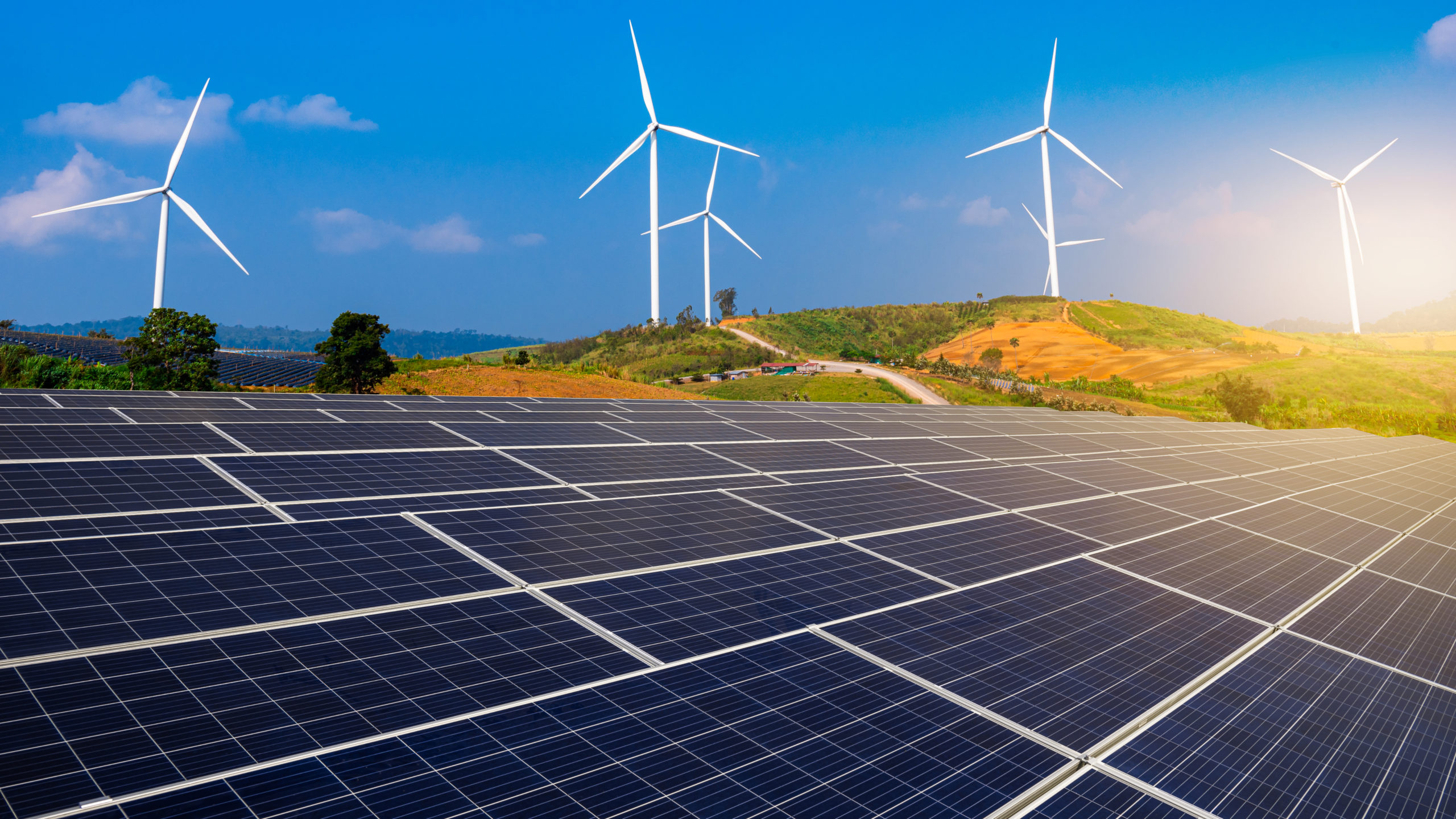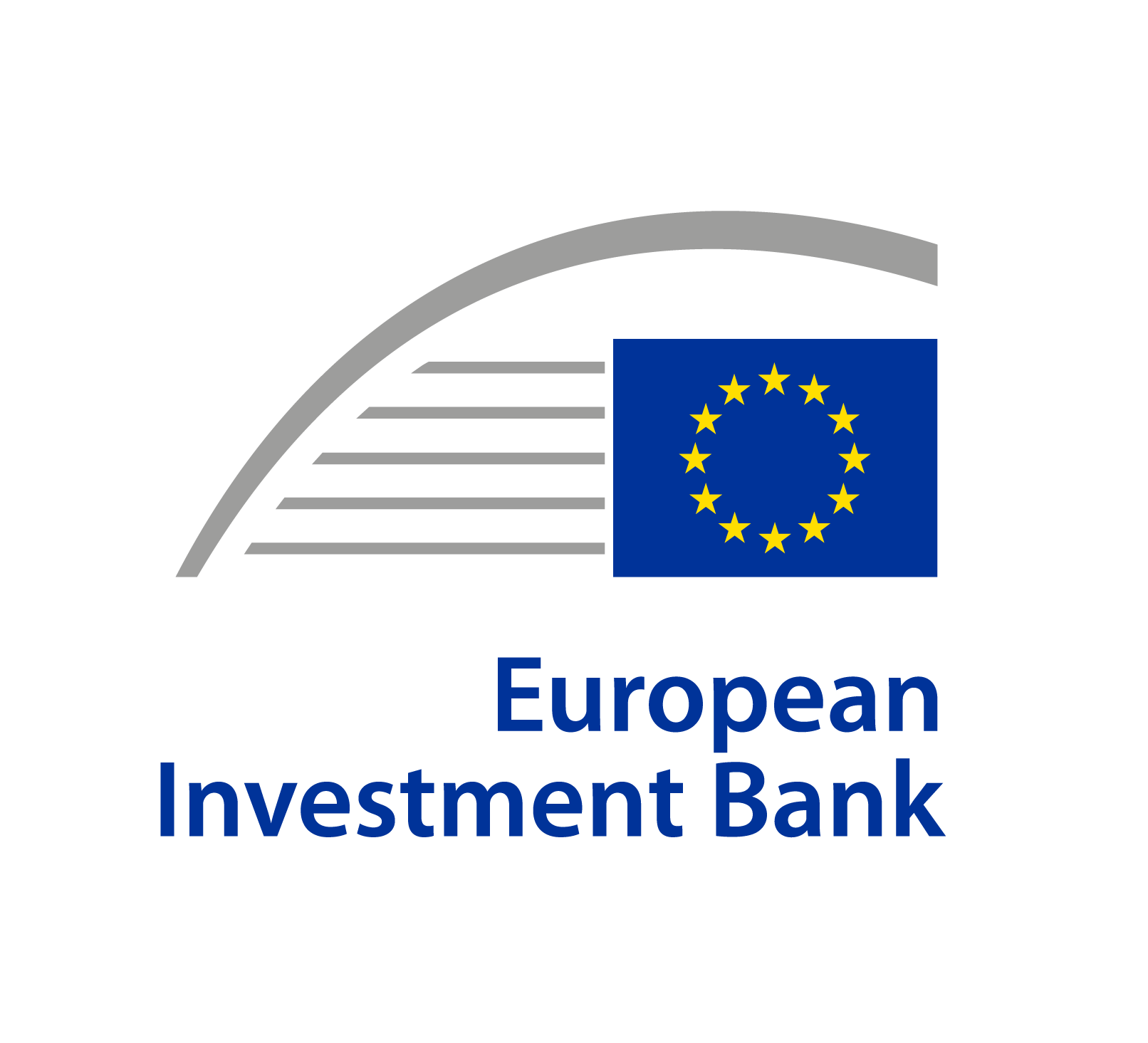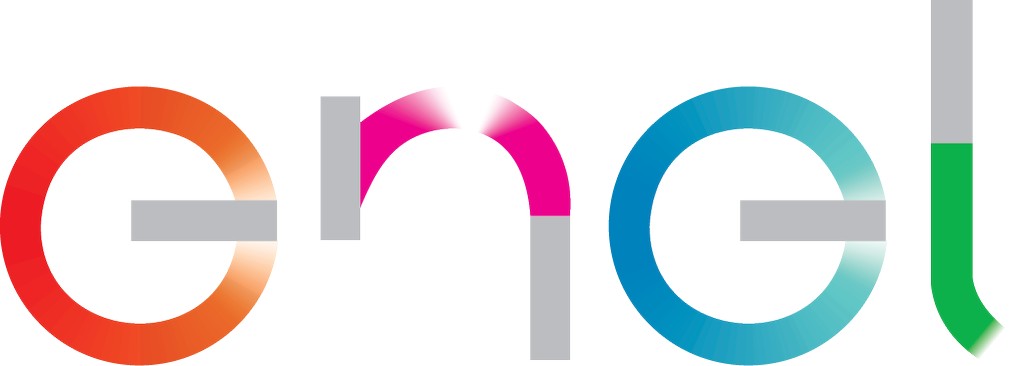
What happened?
New European Commission to maintain climate focus
“We need to stay the course on the Green Deal,” said Kurt Vandenberghe, European Commission Director-General for Climate Action at the yearly Climate and Energy summit.
The European Union will continue to push for clean energy and green industry policy across its member tates. Senior speakers at the event on ‘Navigating risks and enhancing resilience: charting Europe’s energy and climate pathways’ argued that public and private actors are ready to invest in power grids, emerging technologies and clean energy if the implementation mindset and the right policies are in place.
The Russian war of aggression in Ukraine, extreme weather events across Europe and changes in the geopolitical landscape have all significantly impacted Europe’s climate and energy resilience. A shift to the right among voters in recent elections, perceived as declining support for green policies, has led to calls for an EU mandate focused on implementing existing rules rather than proposing new legislation.
“The incoming college of European commissioners will continue Green Deal implementation,” assured Mechthild Wörsdörfer, Deputy Director-General at the European Commission Directorate-General for Energy (DG ENER). “Member states have a lot to implement,” she said.
“We do not need more regulation, we need implementation,” agreed Andrea Wechsler, Member of the European Parliament Committee on Industry, Research and Energy.
The new European Commission is, however, set to publish action plans on subjects including affordable energy and on electrification.
The Commission agenda offers opportunities such as “redefining clean investment partnerships,” highlighted Manon Dufour, E3G Brussels office.
Participants heard that an industrial strategy for clean energy would only make sense if it were European. The EU’s development of a green industrial framework will be critical to strengthening the capacity of net-zero technologies and spurring investment in net-zero manufacturing.
“This is a real industrial issue on a massive scale,” argued Xavier Ursat, Senior Executive Vice-President for New Nuclear Projects and Engineering, Innovation, Corporate Social Responsibility and Strategy at EDF Group. “EDF will invest in flexibility,” he added.
“Most companies we deal with have made a strategic decision to go green,” said Kim Jørgensen, EIB Permanent Representative to the EU institutions.
CEO of 3SUN, Stefano Lorenzi introduced the 3SUN project as the world’s most automated solar cell and module manufacturing plant in Italy. The 3SUN project, “could be an important experience for what Europe might want to do,” Lorenzi pointed out. Recognising the importance of innovation and making use of the right windows of opportunity, he urged collaboration with institutions and other actors at the European level to ensure that this type of breakthrough technology can be scaled up to increase European resilience.
“We are very much seeing movement when it comes to the scale of investment in grids,” noted Brent Wanner, Head of Power Sector Unit at the International Energy Agency (IEA), while warning that “we need to stay vigilant to make sure energy is secure.”
A lot of work ahead
Other speakers agreed there is no room for complacency and much work lies ahead.
Monica Frassoni, President of the European Alliance to Save Energy, said the biggest risk today was “confusion”. This means there is a need for Europe to clarify what is green and what is not, to show companies where they should put their money. “The market and prices will not give the right signs by themselves,” she added.
This sense of urgency was made clearby Heïdi Sevestre, Glaciologist, Deputy Secretary of the Arctic Monitoring and Assessment Programme (AMAP) and 2024 European Young Leader (EYL40), who warned that the climate tipping point might almost have been reached for Greenland, “Once we go past that point Greenland will start to collapse, no matter what we do in future.”
Follow us on Twitter, LinkedIn or Instagram, and join the #ClimateEnergySummit conversation.
Related content:
Our events include photos, audio and video recording that we might use for promotional purposes. By registering, you give your permission to use your image. Should you have any questions, please contact us.
PHOTO CREDIT: Shutterstock / YimJi WK
Schedule
Accelerating the development, adoption, and scaling-up of innovative clean technologies is essential for the success of the net-zero transition. Clean technologies will have a substantial impact on emission reductions, generate investment opportunities and trigger job creation. Europe will need to address its capacity to develop and scale breakthrough technologies and recognise where it can leverage a competitive advantage.
“BUILDING A EUROPEAN CIRCULAR BATTERY ECONOMY”
VoltR is a French manufacturer of eco-designed lithium batteries. Thanks to a rigorous industrial process and cutting-edge technology, VoltR recovers battery cells at the end of their first life cycle and reallocates them into new batteries suited to their residual performance. Thus, VoltR is able to offer eco-designed batteries that are as efficient as conventional batteries, with the ambition to limit their environmental impact as much as possible.
With Maxime Bleskine, CEO of Voltr
COMPLEMENTING CARBON REDUCTION WITH CARBON REMOVAL
Energy from the sun creates photosynthesis in plants, turning CO2 into plant matter, which eventually decomposes and returns to the atmosphere. Finnish startup Carbo Culture emulates this existing process, but makes it much faster. The climate-tech startup leverages natural processes with advanced engineering to create a rapidly scalable solution to remove 1bn tons of carbon dioxide. Co-founded by EYL40 Henrietta Moon, the startup opened its first industrial pilot facility in Finland last year.
With Hanna Ojanen, Head of Carbon Markets and Policy at Carbo Culture
The EU needs to limit its exposure to energy shocks. Despite decreasing dependency on Russia, the EU still imports almost 60% of its energy and faces new supply risks. Strengthening energy security and accelerating decarbonisation will need to remain high political priorities in the next EU institutional cycle.
A resilient and well-integrated European energy system is essential for achieving the EU’s key priorities. Reliable and abundant clean power is crucial for advancing digital technologies and AI, enhancing industrial and economic competitiveness, and meeting the 2030 and 2050 climate targets.
This future clean energy mix will rely heavily on electricity. Although the share of renewables in the EU energy mix has doubled over the past twenty years, the renewables sector faces challenges. Solar and wind industries are affected by volatile prices of critical raw materials, long permitting processes, and a significant investment gap in grids and electricity storage, which constrain the potential of renewables in Europe.
- What is the role for nuclear energy and small modular reactors in the hard-to-decarbonise sectors of the economy?
- How can we improve the speed and scale of the clean energy transition?
- How can we improve the quantity and quality of our grids?
- How does the acceleration of the clean energy transition support the EU’s competitiveness aims?
- Does Europe need a vision for ‘energy sovereignty’?
Speakers
Manon Dufour
Head of the Brussels Office of Third Generation Environmentalism (E3G)
Xavier Ursat
Senior Executive Vice-President for New Nuclear Projects and Engineering, Innovation, Corporate Social Responsibility and Strategy at EDF Group
Mechthild Wörsdörfer
Deputy Director-General at the European Commission Directorate-General for Energy (DG ENER)
Albinas Zananavičius
Lithuanian Vice-Minister for Energy
Brent Wanner
Head of Power Sector Unit at the International Energy Agency (IEA)
Moderator
Dharmendra Kanani
Chief Operating Officer and Chief Spokesperson of Friends of Europe
Speaker
Heïdi Sevestre
Glaciologist, Deputy Secretary of the Arctic Monitoring and Assessment Programme (AMAP) and 2024 European Young Leader (EYL40)
As a glaciologist, Heïdi Sevestre will take the audience to the frontline of climate change, where the cryosphere—Earth’s snow and ice regions—faces unprecedented transformation.
This talk will provide a perspective from climate science, underscoring the critical need to accelerate carbon reduction. By highlighting the irreversible tipping points already nearing in these regions, it emerges that decarbonisation is not only an environmental necessity but also an opportunity for the energy sector.
The energy sector is critical to support both the European decarbonisation efforts, as well as its competitiveness and industrial base. In the new institutional cycle, an integrated approach to energy will require increased investment to boost the generation of renewable energy, increased energy efficiency and security.
With the announcement of the Clean Industrial Deal in the first 100 days of the Commission’s mandate, policymakers and regulators will need to think carefully and hard about the energy dimension of this plan, how to support electrification and safeguard clean energy infrastructure in highly competitive global supply chains, bearing in mind that sustainability and market competition are not mutually exclusive.
In an uncertain political landscape with potential back sliding for the European Green Deal ahead, these critical infrastructures will require a mix of incentives and policy tools as well as research and development to ensure we are able to create a sustainable, competitive and inclusive Europe. We will also need to ensure that public support for the clean energy transition is maintained.
Questions for consideration include:
- What kind of strategy does the EU need to create the enabling conditions for industry to be competitive while leading positive changes in its decarbonisation pathways? And what role can communities have in this process?
- How can EU and national institutions ensure the implementation of the Green Deal guarantees European industry’s competitiveness while protecting consumers and meeting climate objectives?
- How can we make the market stable and attractive for greater investment in climate resilience?
Speakers
Monica Frassoni
President of the European Alliance to Save Energy, former co-president of the European Green Party, former member of the European Parliament and Trustee of Friends of Europe
Lubomila Jordanova
Founder & CEO of Plan A and 2024 European Young Leader (EYL40)
Stefano Lorenzi
Head of 3SUN Gigafactory
Kurt Vandenberghe
Director General at the European Commission Directorate-General for Climate Action (DG CLIMA)
Andrea Wechsler
Member of the European Parliament Committee on Industry, Research and Energy
Kim Jørgensen
Director General and Permanent Representative of the European Investment Bank to the EU institutions
Moderator
Dharmendra Kanani
Chief Operating Officer and Chief Spokesperson of Friends of Europe
Speakers

CEO for VoltR
Maxime Bleskine is a 32-year-old civil engineer that has worked on big infrastructure projects such as the Paris subway extension before founding VoltR, a battery remanufacturing company, in 2022 with 3 associates, where he now is the CEO.

President of the European Alliance to Save Energy, former co-president of the European Green Party, former member of the European Parliament and Trustee of Friends of Europe
Monica Frassoni is an Italian politician who previously served as the Co-President of the European Green Party. Prior to that, during her time as Member of the European Parliament, she was Co-Chair of the European Greens–European Free Alliance group in the European Parliament. She also served for ten years as an officer of the Greens group in the European Parliament and was Secretary-General of the Young European Federalists. In 2010, she co-founded the European Alliance to Save Energy, an organisation which aims to promote and advocate energy savings and a new energy model.

Head of the Brussels Office of Third Generation Environmentalism (E3G)
Manon Dufour is a well-known expert in European climate policy and politics. In her current position as head of E3G’s Brussels Office, she is in charge of the think tank’s reputation, reach and impact in Brussels, by engaging with policymakers and civil society to forge alliances to reach climate neutrality. She previously worked for Bloomberg New Energy Finance in London and New York, where she contributed to creating the company’s service offering on global carbon and European power markets.

Founder & CEO of Plan A and 2024 European Young Leader (EYL40)
Berlin-based Lubomila Jordanova is a one of Europe’s leading Greentech entrepreneurs. On a mission to fight climate change, she founded Plan A in 2017, developing ground-breaking software that enables businesses to monitor and reduce emissions, while improving their environmental, social and corporate governance (ESC) performance. Plan A has developed a global network of over 1,500 companies with the yearly target of cutting CO2 emissions by 1 gigatonne. In addition, she is co-founder of the Greentech Alliance, uniting more than 3,000 stakeholders to harness the power of technology for a sustainable future. She is passionate about wildlife, with a special soft spot for lemurs.

Director General and Permanent Representative of the European Investment Bank to the EU institutions
Kim Jørgensen currently holds the position of Director General and Permanent Representative of the European Investment Bank to the EU institutions in Brussels. Previously, he worked at the European Commission where he was Head of Cabinet to Executive Vice-President Margrethe Vestager. Jørgensen has held various positions within the Danish Ministry of Foreign Affairs and served as Denmark’s Ambassador to Turkey and Permanent Representative of Denmark to the EU. He also spent two years as State Secretary for Foreign Policy at the Danish Ministry of Foreign Affairs.

Chief Operating Officer and Chief Spokesperson of Friends of Europe
Prior to joining Friends of Europe, Dharmendra Kanani was director of policy at the European Foundation Centre (EFC). He was the England director at the Big Lottery Fund, the largest independent funder in the UK and fourth largest in the world. Dharmendra has held senior positions in the public and voluntary sectors and advisor to numerous ministerial policy initiatives across the UK.

Head of 3SUN Gigafactory
Stefano Lorenzi is the Head of Enel Green Power’s 3SUN Gigafactory, in Catania, Italy. 3SUN’s mission is to produce high-performance photovoltaic modules in Europe, by combining research, innovation and sustainability in order to obtain state-of-the-art products that can support Italy and Europe in the energy transition process.
Stefano joined Enel in 2017 in the role of head of the Global Optical Fiber Infrastructure business line where he supported the launch of Open Fiber and subsequently created another global business line, E-City, within Enel X. Following the Enel Group’s acquisition of the fiber optic network operator UFINET, Lorenzi became its Executive Chairman, and moved to Madrid where he contributed to the company’s extraordinary business development in Latin America. More recently, he was responsible for the launch of Enel Fibra, a new telecommunications operator that was integrated with Enel Energia: it acquired more than 100 thousand customers in just a few months.
Prior to Enel, Lorenzi was the CEO at Sirti, Italy’s leading telecommunications engineering company, with more than 4,000 employees, and for six years he successfully managed its turnaround. From 2008 to 2011 he was also president and CEO of Alcatel-Lucent in Italy and a cluster of Mediterranean countries. Stefano began his 30-plus year career in R&D (Research and Development), moving quickly into management roles of increasing responsibility in various parts of the world, working for Telecom Argentina (TIM), KPN-QWEST, AT&T, and Alcatel-Lucent.
Stephen is a retired officer in the Italian Navy and a graduate with honors in telecommunications engineering. He is happily married with three children, who were born in Belgium and the United States.

Head of Carbon Markets and Policy at Carbo Culture
Hanna leads Carbo Culture’s global climate policy advocacy and activities in the Voluntary Carbon Market. Based out of Brussels and originally Finnish, she has worked on a wide range of topics in this space, with a focus on foresight, strategy and carbon removal policy.
Her prior experience includes working in strategy and policy at the Prime Minister Sanna Marin’s Office in Finland. She regularly contributes to policy discussions within the EU and is the Chair for the High Level Climate Policy Working Group at the Negative Emissions Platform.

Glaciologist, Deputy Secretary of the Arctic Monitoring and Assessment Programme (AMAP) and 2024 European Young Leader (EYL40)
Heïdi Sevestre is a French glaciologist, specialising in glacier dynamics, tropical glaciers and ice shelves in Antarctica. She aims to make scientific knowledge more accessible and motivate concrete, effective climate action. Sevestre is the Deputy Secretary of AMAP, an Arctic Council working group that coordinates research on climate, pollutants, contaminants, and human and ecosystem health in the Arctic. Her research on glacier surges, which was featured in Science magazine, strengthened our understanding of climate change’s impact on glaciers. Sevestre regularly leads scientific expeditions to polar and high mountain regions and was notably awarded the inaugural Shackleton Medal for the Protection of Polar Regions.

Senior Executive Vice-President for New Nuclear Projects and Engineering, Innovation, Corporate Social Responsibility and Strategy at EDF Group
Xavier Ursat is the Senior Executive Vice-President of New Nuclear Projects and Engineering at the EDF Group. Since late 2023, he has also been responsible for innovation, corporate social responsibility, and strategy. Ursat joined EDF in 1991 and held various positions in hydraulic engineering until 2002. He has also held several leadership positions within EDF and is involved in various industry organisations. Since April 2024, Ursat has held the position of Group Senior Executive Vice President responsible for the Strategy, Technologies, Innovation and Development Directorate.

Director General at the European Commission Directorate-General for Climate Action (DG CLIMA)
Prior to his current position as Director General of DG CLIMA, Kurt Vandenberghe was the Green Deal and Health advisor to European Commission President Ursula von der Leyen. Before joining the President’s cabinet, he worked at the Directorate-General for Research and Innovation (DG RTD), where he was director for Policy & Programming and acting director for Research & Innovation Outreach. Previously, Vandenberghe was Director for ‘Climate action and resource efficiency’ at DG RTD. Before entering the Commission, he worked as a manager at Ernst & Young Association Management, where he set up, managed and represented international trade associations.

Head of Power Sector Unit at the International Energy Agency (IEA)

Member of the European Parliament Committee on Industry, Research and Energy
Born in 1977, Professor Dr. Andrea Wechsler belongs to a generation that grew up in peace, security, freedom, and prosperity. For her, Europe is a nearly 80-year success story, achieved through deliberate political effort. As an MEP, she is committed to shaping a Europe where future generations can also enjoy these values, while striving for a competitive, innovative, and strong economy within our Union.
From 2013 to 2024, she served as a Professor of Business Law at Pforzheim University, where she also led strategic development initiatives as Prorector. She directed the GründerWERK – Center for Entrepreneurship, guiding future leaders in business creation. Her experience includes serving on the Consumer Commission of Baden-Württemberg and as the Director of the Institute for Mediation and Conflict Management (IMK).
Professor Wechsler has held prestigious fellowships at the European University Institute in Florence and the Schöller Research Center and worked with the Max Planck Institute for Innovation and Competition. Her academic journey includes degrees from Columbia University, the University of Oxford, and Ludwig Maximilian University in Munich, where she earned her doctorate summa cum laude.

Deputy Director-General at the European Commission Directorate-General for Energy (DG ENER)
Mechthild Wörsdörfer is Deputy Director-General at the European Commission’s DG Energy, where she is in charge of the coordination of the just and green energy transition. This includes steering the work on REPowerEU, accelerating the deployment of renewables and energy efficiency measures and ensuring EU’s security of supply. Wörsdörfer is also responsible for the relations with the Energy Community, and steers the bilateral relations with Ukraine, Moldova, Switzerland and the United Kingdom. Prior to this, Wörsdörfer was the director responsible for sustainability, technology and outlooks at the International Energy Agency (IEA); director at DG Energy in charge of renewables, research and innovation, energy efficiency; and director for energy policy, international relations, legal aspects and economic analysis. Previously, she was head of Unit on the 2030 Energy and Climate Framework and served in the Cabinet of Erkki Liikanen, European Commissioner for Enterprise Policy and Information Society.

Lithuanian Vice-Minister for Energy
Prior to his current role as Vice-Minister for Energy of Lithuania, Albinas Zananavičius currently served as vice-minister of Foreign Affairs, working on EU policies and foreign trade as well as economic and energy security policy. Other postings during his 25-year diplomatic career included assignments in Helsinki and Geneva, where he represented Lithuania to the World Trade Organization (WTO). Previously, he was also deputy chief of mission at the Lithuanian Permanent Representation to the EU (COREPER I). In the Ministry of Foreign Affairs, Zananavičius served as head of the Foreign Trade Policy Division and director of external economic relations.
Activities
A bold vision for a climate-neutral and competitive Europe
Next event In person & livestreamed

- Area of Expertise
- Climate, Energy & Natural Resources
European Oceans Pact: is maritime transport on board?
Past event In person & livestreamed

- Area of Expertise
- Climate, Energy & Natural Resources
Staying the course: driving sustainability forward in a shifting…
Past event In person & livestreamed

- Area of Expertise
- Climate, Energy & Natural Resources
Navigating risks and enhancing resilience: charting Europe’s energy and…
Past event In person & Livestreamed

- Area of Expertise
- Climate, Energy & Natural Resources
We need a new cultural strategy for global climate action
- Category
- #CriticalThinking
- Author
- By Saman Rizwan
A betrayal of the future: the EU must act now
- Category
- #CriticalThinking
- Author
- By Benjamin Van Bunderen Robberechts
Citizen-led recommendations for the Horizon Europe Missions on…
- Category
- News
- Area of Expertise
- Democracy
Policy Voices | What is the cost of not doing Carbon Dioxide Removal?
- Category
- Podcast
- Area of Expertise
- Climate, Energy & Natural Resources

- Area of Expertise
- Climate, Energy & Natural Resources

- Area of Expertise
- Climate, Energy & Natural Resources

- Area of Expertise
- Climate, Energy & Natural Resources

- Area of Expertise
- Climate, Energy & Natural Resources
Continue
the debate on
- Debating Europe






